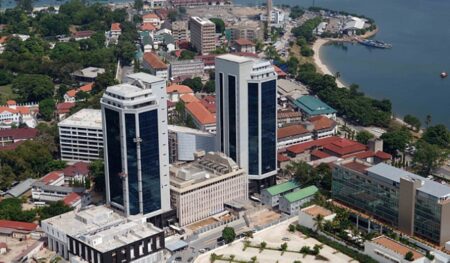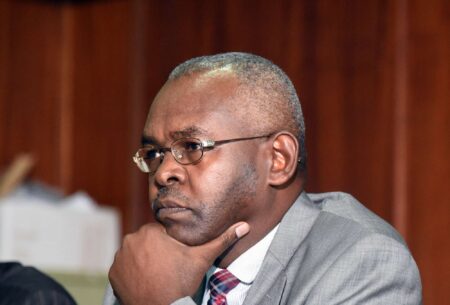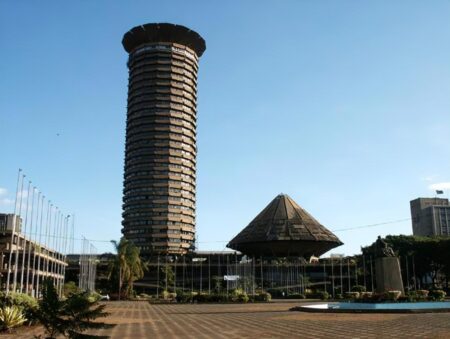Equity Bank has posted a 5.1 per cent rise in its profit for the first quarter of the year as the SMEs —focused—lender continues to navigate the interest rate cap regime in Kenya and a loan default trend in Tanzania.
The Nairobi Security Exchange (NSE) listed bank recorded a Ksh6.2 billion (USD61.3 million) net profit for the period, up from Ksh5.9 billion (USD58.4 million) in a similar period last year, buoyed by interest income and cost management.
READ:Equity net profit grows to Ksh19.8 billion on FinTech
Interest income from loans and advances rose to Ksh9.1 billion (USD 90million) up from Ksh8.7 billion(USD86 million) last year as the lender’s loan book swelled to Ksh305.5 billion (USD3.02 billion ) compared to Ksh271.1 billion (USD2.7 billion ) in March last year.
Interest earned from government securities equally went up to close the quarter at Ksh4.1 billion (USD40.5 million), compared to Ksh3.7 billion (USD36.6 million) in a similar period last year.
Total interest income (including from deposits and placement with other banks) grew 6.3 per cent to a total Ksh13.5 billion (USD133.5 million), compared to Ksh12.7 billion (USD125.6 million) in 2018.
During the period under review, customer deposits grew 12.1 per cent from Ksh382.4 billion (USD3.8 billion) the lender had in Q1 of 2018 to Ksh428.5 billion (USD4.2 billion).
“Equity Group’s ability to attract cheap deposits and borrowed funds is underpinned by its stable deposit franchise,” Group CEO and Managing Director James Mwangi said during the releasing of the results in Nairobi.
During the period under review , total assets grew 14.8 per cent to close at Ksh605.7 billion (USD 5.9 billion) compared Ksh527.8 billion (USD5.2 billion) in last years’ quarter.
The lender which has a regional appeal with operations in Tanzania, Rwanda and South Sudan however saw Non Performing Loans (NPLs) increase by 68.4 per cent to close at Ksh26.1 billion (USD258.1 million) compared to Ksh15.5 billion (USD153.3 million) reported in a similar period last year.
The bank’s customers in Tanzania are reported to have defaulted on nearly a third of loans in the first quarter, affecting the group’s overall performance.
According to the lender, its Tanzanian subsidiary has been hit by the ban on raw cashew nut exports, imposed last year, and the move to relocate core government functions from the commercial capital Dar es Salaam to Dodoma.
READ:Tanzania cashew farmers still grappling with poor pay
CEO Mwangi said the developments in Tanzania have affected the markets especially the SME value chain.
Out of its 15 branches in Tanzania, eight are in Dar es Salaam, hence the impact to its business as government activities continue to shift to Dodoma.
READ ALSO:Tanzania’s govt to shift key operations from Dar to Dodoma
Equity is however seeking to cement its operations in Tanzania with the acquisition of BancABC Tanzania.
The Group also targets acquisitions of BancABC Zambia and BancABC Mozambique, as well as a 62 per cent stake in Banque Populaire du Rwanda, from London-listed Atlas Mara.
The deal involves a share swap valued at Ksh10.6 billion (USD104.8 million).
Atlas Mara will get a 6.27 per cent stake in the NSE-listed lender with a possibility of raising its stake by acquisition of more shares for cash.











